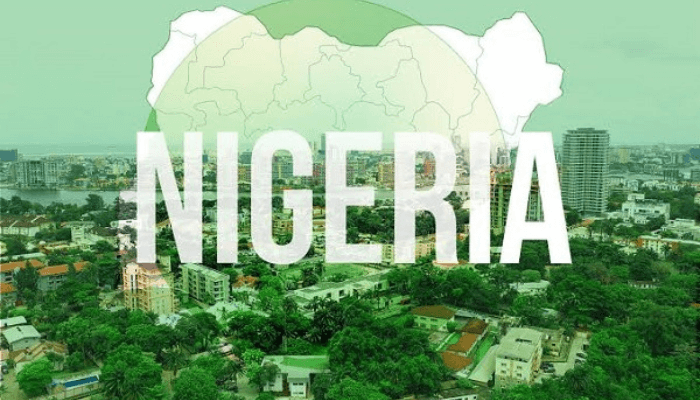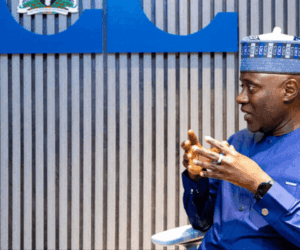On August 15, 2025, BusinessDay, under its Yaba School of Thought (YSoT) series, published a compelling essay by Dr Vincent Nwanma titled ‘The path to economic transformation is building new cities, not creating states.’ His intervention could not be more timely. Nigeria now stands at a decisive crossroads: continue down the path of political fragmentation through state creation, or embrace the harder but more rewarding journey of economic transformation through visionary urban renewal.
The call for new states is not new. It emerges with every constitutional debate, driven by ethnic considerations, local grievances, and the lure of political power. Proponents insist that more states guarantee equity and development. But the reality is different. Most existing states already survive on federal allocations, unable to generate enough internal revenue to fund basic infrastructure. Bayelsa, despite its oil wealth, requires bailouts, while Katsina earns less in internal revenue than Lagos collects from parking fines. Creating 31 additional states, raising the total to 67, would only multiply inefficiency.
The cost is staggering. Dr Nwanma estimates that each state would drain ₦6.2 trillion annually from the national purse, with governors’ offices, assemblies, and judiciaries consuming billions yearly. This is not development; it is fiscal vandalism dressed up as representation. Nigerians themselves recognise this: a recent poll shows 72 percent reject state creation. What citizens want is not more politicians, but more functional communities.
That is where cities come in. Nigerians are urbanising at an unprecedented pace. Already, 55 percent of its 237.5 million people live in cities, and this will rise to nearly 80 percent by 2050, amounting to 250 million urban dwellers. Africa as a whole is on a similar trajectory, with 1.4 billion people projected to live in cities by mid-century. These figures are not abstract. They mean that unless Nigeria invests in smart, liveable, and efficient cities, the country’s infrastructure, services, and economic systems will collapse under the weight of its population growth.
“State creation is fiscal vandalism dressed as representation; smart cities are the engines of real transformation.”
Examples abound across the continent. Egypt’s experiment with its New Administrative Capital reveals both inspiration and caution. Conceived as part of Egypt’s 2030 vision, the project aimed to decongest Cairo, stimulate growth, and showcase modernity. Yet its cost, $58 billion, has largely benefited elites, pricing ordinary citizens out of housing while deepening national debt. Nigeria must learn from this: cities cannot be built as monuments for the privileged; they must serve as functional hubs for the many, not the few.
So, what should Nigeria do?
First, the government must declare urban development a national priority. Instead of yielding to political demands for new states, it should commit to building at least one smart city in each geopolitical zone within the next decade. These cities should be planned with transport systems, renewable energy, digital infrastructure, affordable housing, and green spaces, making them magnets for investment and innovation.
Second, financing must be innovative. Relying solely on federal budgets is neither feasible nor sustainable. Nigeria can create urban development funds anchored on public-private partnerships, infrastructure bonds, and diaspora investment schemes. Lagos’s Eko Atlantic, though imperfect, demonstrates that large-scale urban projects can attract private capital when the government provides policy stability and guarantees.
Third, governance structures must be redesigned. Cities should not be micromanaged from Abuja or state capitals. Instead, municipal governments with fiscal autonomy and accountability should drive urban development. Empowering local councils with resources and responsibilities is more effective than multiplying state bureaucracies.
Fourth, inclusivity must be at the core. Unlike Egypt’s new capital, Nigeria’s cities must be built for ordinary citizens. That means ensuring affordable housing, accessible healthcare, integrated transport, and opportunities for small businesses. Building cities only for the middle and upper classes creates islands of wealth surrounded by oceans of poverty, an invitation to instability.
Fifth, planning must anticipate demographic realities. Nigeria’s population growth is not slowing down. By 2050, Lagos alone may house over 30 million people. Without proactive measures, such as satellite towns, efficient rail systems, and sustainable energy, this will translate into choking congestion and collapsing infrastructure. Planning must therefore be forward-looking, not reactive.
Finally, political will is indispensable. Nigeria’s leaders must resist the temptation to trade state creation as a bargaining chip for short-term political advantage. History will not remember how many states were created, but how many cities were built to sustain generations.
The choice is clear. Fragmentation through new states is a dead end, costly, divisive, and unproductive. Transformation through smart, functional cities presents Nigeria with an opportunity to compete globally, attract investments, and enhance the quality of life for its citizens. The future belongs not to those who carve new states on paper, but to those who build cities in reality.
If Nigeria is to unlock its promise, the government must stop feeding the hunger for political theatre and start feeding the vision of sustainable urban growth. The time to act is now.
Mayowa is the Opinion Page and Newsletters Editor @ BusinessDay.








